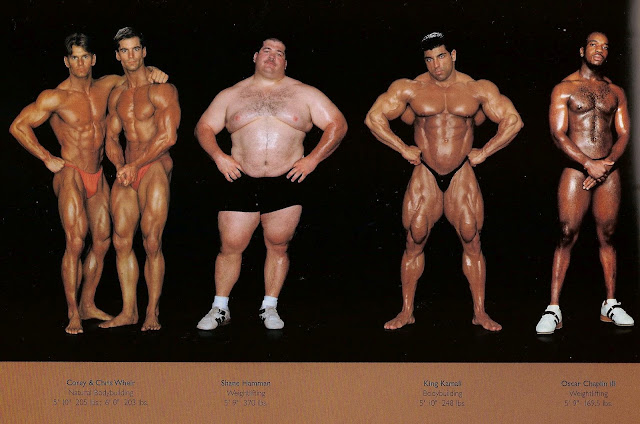Robin Hammond: Condemned Mental Patients of Africa
Images of war and conflict have helped sway the opinion of people towards acting for the benefit of the victimized groups. In today's world however, the prevalence of war photographs has become so commonplace that most viewers have become desensitized to these images. This is saddening since a lot suffering still happens even years after armed conflict has passed. In his series entitled "Condemned", Robin Hammond gives a different perspective as a he exposes the cruel treatment of mental patients of Africa.
Robin Hammond is a photojournalist who has worked on human rights issues focusing on East Africa. He had previously traveled to Zimbabwe to document the extreme poverty of mostly everybody there. In the few short months he was in the country, Hammond was imprisoned two times and then deported. While the affair shocked him, he went back to the East Africa for another mission which he discovered serendipitously.
Hammond began his work on the condemned psychological victims when traveled to South Sudan to document the birth of the young nation. During one of his trips, he visited Juba Central Prison. There, he encountered mentally ill patients suffering from the trauma of prolonged war and who were now being neglected for lack of trained medical personnel and proper facilities. It was then that Hammond decided that his mission was to document the condemned mental patients of the region.
According to the World Health Organization, 1 in 3 Somali citizens suffer some form of psychological illness, born out of the years of war, famine and rape. The period of violence and desolation is so long, that an entire generation of Somalis have been born knowing only conflict and suffering. Similar stories can be found in the other neighboring countries of South Sudan, Kenya, Uganda, and Congo. When Hammond visited these places, he found men and women who had either lost lost loved ones to armed conflict, or were victims themselves of violence.
While the physical manifestations of war were easy to see, the mental toll was somewhat harder to document. This was because most mentally ill citizens were locked away from the public. Hammond recounts one of his visits to these victims: "Stepping into Juba Central Prison was like stepping into some kind of Hell. The heat, the stench, and here are these men, many chained to the floor, some naked and covered in flies and excrement... unfortunately, I would discover that this was not a unique case."
The default solution to the physiologically imbalanced is to chain them up and lock them away. For those still living outside of these prisons, they are tied up to a stick or post, and left their for years and years. In other areas, people resort to religious leaders to cure their family members. These healers use prayer and herbal medicines to treat patients, although many are also chained up during the process. For most families with mentally disturbed children, the only options are to lock them away in make-shift hospitals, hide them from the public, or simply abandon them.
Hammond's photographs reveal the cruel toll of war years after the fact, but his images only cover East Africa. In the next few years, the photographer is looking to expand his documentary to West Africa, specifically Côte d'Ivoire, Chad, the Central African Republic, and Nigeria. In order to fund his project, Hammond is requesting the public to help cover his expenses (pledges can be made here). In doing so, Hammond hopes to increase awareness of the vulnerable people in these countries, which will hopefully lead to positive action.
This is Robin Hammond's website. Those who would like to help fund his continuing reportage of the condemned mental patients of Africa can do so here. He currently has one publication on his previous project entitled Robin Hammond: Zimbabwe: Your Wounds Will Be Named Silence.











Very disturbing pictures.
ReplyDelete1/3 is quite a lot of people.
ReplyDeleteWhat is happening in the last one? is he trying to escape?
ReplyDeleteGreat photos, a bit shocking.
I had not ever before thought about the mental health system in Africa. These images have given me something new to think about.
ReplyDeleteImages that clog my mind and hurt my heart.
ReplyDeleteHuman condition?
i dont get why they live the way they do
ReplyDeleteIf you are going for most excellent contents like me, just go to see this web site everyday as it gives feature contents, thanks
ReplyDeleteVisit my web page - app development Gauteng
Really nice photos
ReplyDeleteIt is so moving. Almost unbelievable that those practices still take place in this world.
ReplyDeleteThis really shows the importance of education.
these pictures are so contrasting, on the one hand the composition is beautiful, nuance and contrast of tones and on the other, are so heartrending
ReplyDeleteI'm in shock to see this pictures. We need more justice and love in this world.
ReplyDeleteThe photos struck me! Good job!
ReplyDelete